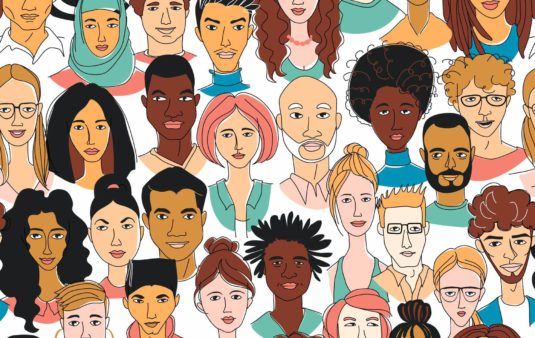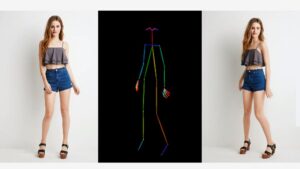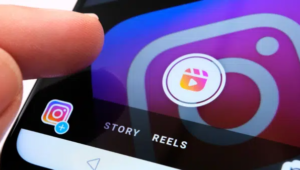Roughly 90% of both BIPOC and white SEOs say bias is a problem in the industry.
The report, out this week from Nicole DeLeon’s North Star Inbound, indicates that many companies and agencies are addressing diversity, equity and inclusion within their cultures and with formal policies. Yet, nearly one-third of both BIPOC and white respondents said bias and discrimination are a moderately serious or extremely serious problem at their companies. Gender, racial, ethnic, sexual orientation are just some of the types of discrimination people can experience, according to a 2017 study.
The survey, fielded online from August 24 to September 28, was completed by 326 SEOs. Of those who indicated their gender, 203 identify as women, 109 identify as men, and 11 identify as nonbinary, genderqueer, two-spirit, or gender nonconformist. Respondents included 231 (71%) who described themselves as white; 32 described themselves as Hispanic, Latino, or Spanish; 28 Black or African American; 18 Asian or Asian American; 11 Middle Eastern or North African; eight Indian or South Asian; four Native Hawaiian or other Pacific Islander; and three American Indian or Alaska Native. The BIPOC totals add up to more than 95 because some people were counted in more than one category. One-quarter described themselves as LGBTQ+.
Watch: The SEO gender gap and how to close it
Workplace versus industry perceptions
In their own organizations. Within their own companies, 59% of BIPOC respondents said bias and discrimination is a problem, with 32% indicating it is a moderately or extremely serious problem. Among white respondents, 56% said bias and discrimination is a problem at their companies, with 28% saying it is a moderately or extremely serious problem within their organizations.
When asked whether diversity was a priority at their company, 50% of the SEOs indicated that it was — nearly three times as many as those who said it wasn’t (17%).
In the SEO industry. There was a striking increase in concern among both BIPOC and white respondents when asked about the SEO industry as a whole. Nearly 9 in 10 (89%) BIPOC SEOs said there is a problem, with 74% seeing bias and discrimination as a moderately or extremely serious problem in the industry. Among white respondents, 93% said bias and discrimination are a problem in the industry, with 67.5% saying it is a moderately or extremely serious problem.
 100vw, 595px” data-lazy-src=”https://searchengineland.com/wp-content/seloads/2020/10/northstar-nicole-deleon-dei-seo-survey-595×600.jpg” /></a><figcaption>Click to enlarge.</figcaption></figure>
</div>
<h2>Effects of bias on productivity, advancement and well-being</h2>
<p>Roughly 40% of respondents said they have experienced bias in the past year. Whether it happens in the workplace, on social media, during events, hese experiences have an impact on productivity, career trajectory and well-being. From the report:</p>
<ul>
<li>69.1% feel “Bias in the workplace has had a negative impact on my productivity and sense of engagement.” (38.3% strongly agreed; 30.8% slightly agreed)</li>
<li>72.1% feel “Bias in the workplace has had a negative impact on my career advancement and earnings.” (39.3% strongly agreed; 32.8% slightly agreed)</li>
<li>74.6% feel “Bias in the workplace has had a negative impact on my happiness, confidence, or well-being.” (42.6% strongly agreed; 32.0% slightly agreed)</li>
</ul>
<p>To analyze income differences among those with similar career profiles, the report looks at SEO generalists in the U.S. This yields small sample sizes ranging from 8 to 35 per category. “These were small groups, so the results are far from definitive. But the consistency of a disparity merits conversation,” DeLeon notes.</p>
<p>Among white and BIPOC males and white and BIPOC females, the survey found BIPOC SEOs earn less than their white SEOs across age brackets — 20s, 30s and 40s. Here’s what the numbers look like for U.S.-based SEO generalists in their 40s:</p>
<ul>
<li>White male SEOs in their 40s reported earning an average of $115,937 per year. BIPOC male SEOs in their 40s reported earning an average of $90,417 per year <strong>(28.2% less)</strong>.</li>
<li>White women SEOs in their 40s reported earning an average of $109,375 per year. BIPOC women SEOs in their 40s reported earning an average of $101,094 per year<strong> (7.6% less)</strong>.</li>
</ul>
<h2>What bias and discrimination can look like</h2>
<p>“Minority racial and ethnic groups are often targets of microaggressions, but these offenses can be directed at any marginalized group in addition to people of color, including women, people with disabilities, individuals in the LGBTQ+ community, those with mental illness, single parents, and people in lower economic classes,” explains DeLeon.</p>
<p>The most common microaggression reported by the SEOs in the past year was being interrupted or spoken over (81%). Second was having an idea taken by someone else, with nearly 60% saying this has happened to them in the past year. More than 4 in 10 reported being paid less than similarly qualified employees. Forty-two percent recall being addressed unprofessionally.</p>
<p>“Where are you really from?”; “I think what she was trying to say was…”; or a male boss saying to a female employee in a meeting, “I bet your husband doesn’t win many arguments with you,” are examples of microaggressions.</p>
<div class=)
 100vw, 471px” data-lazy-src=”https://searchengineland.com/wp-content/seloads/2020/10/northstar-nicole-deleon-dei-seo-study-microaggressions-471×600.jpg” /></a><figcaption>Click to enlarge.</figcaption></figure>
</div>
<p><strong>Why we care</strong>. This report complements DeLeon’s recent <a href=) look at gender in SEO. Both highlight the need for more education, training and awareness of our own actions at work and online to foster more successful, creative and prosperous companies, agencies and individuals in the search industry.
look at gender in SEO. Both highlight the need for more education, training and awareness of our own actions at work and online to foster more successful, creative and prosperous companies, agencies and individuals in the search industry.
DeLeon’s report contains much more data, including detailed looks at the types of microaggressions more commonly experienced by different groups. It also includes examples of solutions and ways companies are addressing DE&I initiatives. Comments from respondents about their own experiences of bias and discrimination are also illustrative. I’ll leave you with three and encourage you to read the full report:
“When starting out, I worked at a boutique agency where many people felt comfortable telling Black and Asian jokes to me. I was on time for a business trip meetup at 5 a.m. and one employee joked that he didn’t realize Black people could get up that early. I left as soon as I could get another job that wouldn’t ding my résumé,” a 37-year-old Black woman SEO wrote.
“White men on SEO Twitter are the f***ing worst. They are defensive, uncouth, and destructive for the industry. So scared of losing power they will drive EVERY BIPOC from SEO if they could,” Jamar Ramos, 38, the black male chief operations officer of Crunchy Links in Belmont, California wrote.
“As a woman, I’ve had male SEOs expect me to do all the legwork because my time is less important, and then they try and take credit for my work. When I called them out, I was met with bullying. It’s a disgusting situation to still be in after this long in the industry,” a 46-year-old white woman in the U.K. with more than 15 years of experience in the field wrote.




